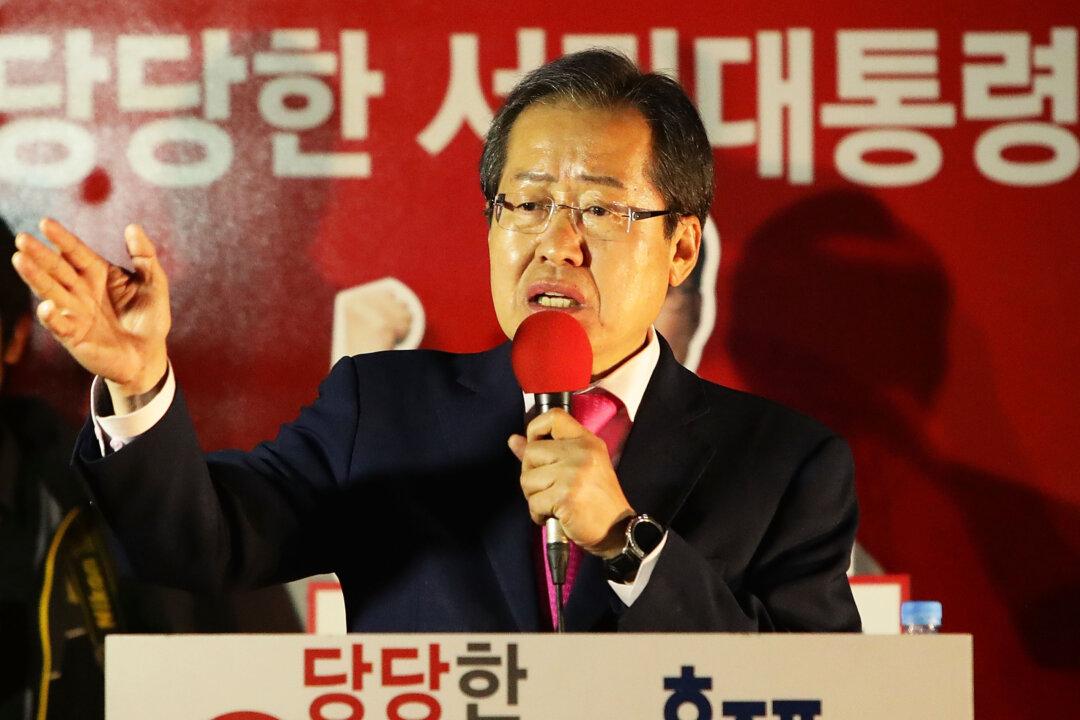South Korean presidential candidate Hong Joon-pyo on Oct. 27 made a series of pledges to transform South Korean diplomacy if elected, as the country gears up for its presidential election in March 2022.
Hong pledged “Korea First” policies, such as building a nuclear sharing program between South Korea and the United States, abolishing the “Three No’s” commitment to China, and other campaign conventions on security, national defense, and foreign policy.





